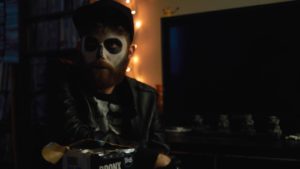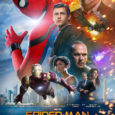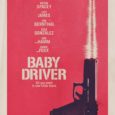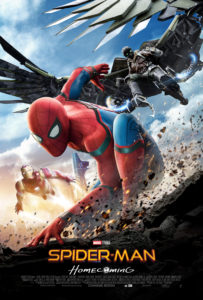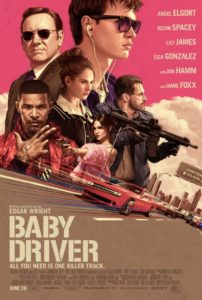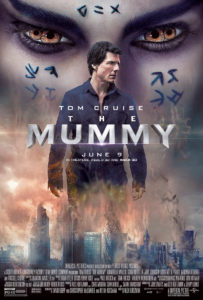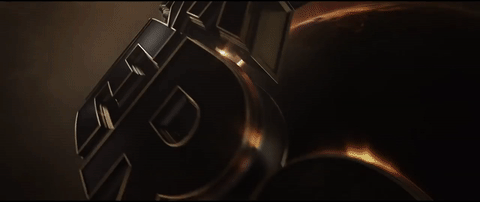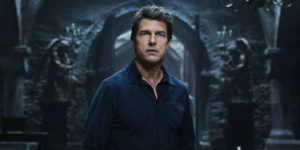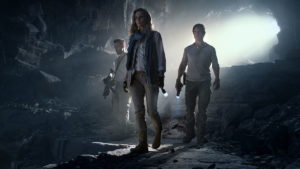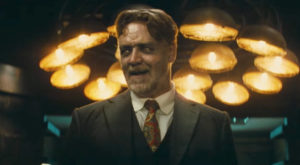Well, it’s finally October, the season of cooler weather, colorful trees and pumpkin spice. It’s also the time to watch scary movies in the lead up to Halloween, and there’s no shortage of choices when it comes to horror. But with all of the Freddys and Jasons and Sammi Currs out there, is there room in a Halloween movie marathon for a film that doesn’t contain buckets of blood? If Good Day is any indication, the answer to that is “yes.”
I first got the chance to see Good Day at the Kew Gardens Festival of Cinema in Queens, NY. I was invited to the screening by the movie’s director, Louie Cortes, and felt compelled to check it out. I’d only seen the trailer for the film and really didn’t know too much about it before I went in. What I saw, however, was much different than I imagined.
Written by Christine Clark and Cortes, Good Day follows the lives of six twenty-somethings in New York City. Much like Pulp Fiction and 2 Days In the Valley, their paths intersect in some meaningful way as they all converge on the same Halloween party. Unlike Pulp Fiction and 2 Days In the Valley, Good Day is a wholesome yet funny look at the gamut of emotions they’re struggling with. Depression, loneliness, loss of a family member, and the fear of a stagnating career. All of these themes are relatable to the audience, which makes the characters feel like real people. They express their emotions and feelings, sometimes in overly verbose ways, but at the end of it, viewers can easily understand their plight.
The film does all of this in a highly engaging and hilarious way. This was probably the most surprising thing about the movie because there isn’t the slightest hint of comedy in the trailer. Watching that, I assumed Good Day was a coming of age melodrama that happened to be set around Halloween. To be fair, though, that trailer was cut well as it didn’t set any expectations for the humor and may have worked in its favor as Good Day was recently nominated for “Best Comedy Feature” at the Alternative Film Festival.
Though the film didn’t win “Best Comedy,” it did walk away with the award for “Best Cast,” which was most deserved. The cast was one of the finer parts of the film. Though Good Day featured no big name stars, most everyone has a great on-screen presence, despite the one or two stilted performances,
The film focuses on Sam M, played by Christopher Poultney. Sam has a strong self confidence which borderlines on arrogance and is forced to reevaluate himself after he meets a girl who doesn’t reciprocate the interest he feels. His storyline comes to a head when he meets Lisa (Kaelin Birkenhead). Lisa displays a hardened exterior to the world despite having a very caring heart. The audience learns this early in the film when Lisa is shaken to hear that her grandfather, whom she’d never had a relationship with, had died.
The film is rounded out with other great characters, such as Lydia, played by Samantha Quintana, a small-town girl who moved to New York for the right reasons but with the wrong motivation and is struggling to find her place. Then there’s Matt (Michael Ryan Assip), Sam’s best friend who dreams of becoming the next great horror movie writer a la George Romero but lacks the focus to finish a screenplay. Though his performance was rocky at first, Matt quickly became one of my favorite characters in the movie, helped along by Assip’s great comedic timing.
Good Day is not a perfect film, however. It is plagued by a number of technical issues, most notably the sound in some areas. A few of the shots feel cramped and claustrophobic, which is likely due to the indie nature of the movie and the need to shoot in any place that feels authentic regardless of size. These things are easy to overlook, though, through the director’s deft cinematography. Cortes has a way of framing his shots that’s simple yet intriguing and makes the movie fun to watch.
As of writing this, Good Day has yet to find a distributor, meaning that it’s unlikely to get a wide release, either in theaters or streaming. There is some good news, though. If you are local to New York, Good Day will be screened for free on October 23rd at the Queen’s Court in Astoria. The film will be shown alongside two surprise short films. The event is BYOB and candy will be supplied so if you’re interested, be sure to check out their Facebook page for more info.
Overall, Good Day is a poignant look at the real issues young people face and the ways in which they cope. It’s the kind of movie that can easily fit into an annual Halloween screening, a welcome break from the horror films and slasher flicks that most people watch every October. Hopefully Good Day will find a distribution deal soon so more people can enjoy it. Given its newly found status as an award winning film, the chances of that seem higher.
Grade: B+
Not looking for something so adult? Try our Ten Family Friendly Halloween Movies to help lull the kiddos into a candy coma! Afterward, you can set the mood with Five Albums to Flesh Out Your Halloween Playlist and huddle under the covers with Netflix and Chilling – Halloween Movie Edition. Any other off-beat Halloween suggestions to throw our way? You can let us know on Twitter @SubCultured or come party like its 1599 in our Discord server!
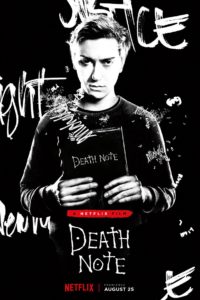 On Friday, Netflix dropped Death Note, a live-action film adaptation of the popular manga/anime of the same name. Since I was free for most of Sunday afternoon, with no plans besides counting down the hours until the seventh season finale of Game of Thrones, I figured I may as well check it out. After all, it was something I was looking forward to, despite the valid whitewashing criticism.
On Friday, Netflix dropped Death Note, a live-action film adaptation of the popular manga/anime of the same name. Since I was free for most of Sunday afternoon, with no plans besides counting down the hours until the seventh season finale of Game of Thrones, I figured I may as well check it out. After all, it was something I was looking forward to, despite the valid whitewashing criticism.
Before you read through my review, please keep in mind, I haven’t read the manga version of Death Note, nor watched a single episode of the anime series. I’m merely critiquing the Netflix movie on its own merits.
Also, while I’m not going to outright give away the ending, I do make references to certain plot points of the film, which may be spoilers for anyone who hasn’t seen it yet. So proceed with caution.
Death Note focuses on Light Turner, a smart high school kid who doesn’t seem to have any friends. His mother was recently killed, leaving just him and his cop father, a dynamic which causes a rift in their relationship. His mother’s killer walked away from the charges and Light doesn’t feel his father pursued the killer hard enough. One day, during a freak storm, Light finds a notebook, the Death Note, which grants the user the ability to kill anyone whose name is written on its pages. There are a bunch of rules associated with the Death Note but it all boils down to “killer notebook.”
Along with his girlfriend Mia, Light (I can’t believe this is the kid’s name) goes on a killing spree. They target bad guys and people who hurt others in an effort to “better the world.” In the process of their murders, they attribute the killings to a karma god of sorts, whom they name Kira, as a way to strike terror into the hearts of evil-doers.
 The murders attract the attention of L, an eccentric detective who is fueled by candy and often forgets to sleep. Being a sugar addict seems like an odd character trait to give a prominent character so I assume that this was a carry-over from the source material, but it really seems out of place. The film tried to explain it with an off-hand remark about the “insulin rush” but the trait doesn’t seem natural. In a long form narrative, like the manga or the anime, a quirk like this can developed and also used as a detriment to the character, such as when he’s in a situation lacking sugar. The movie, however, just shoehorns it in with very little (if any) explanation, so it comes off as silly.
The murders attract the attention of L, an eccentric detective who is fueled by candy and often forgets to sleep. Being a sugar addict seems like an odd character trait to give a prominent character so I assume that this was a carry-over from the source material, but it really seems out of place. The film tried to explain it with an off-hand remark about the “insulin rush” but the trait doesn’t seem natural. In a long form narrative, like the manga or the anime, a quirk like this can developed and also used as a detriment to the character, such as when he’s in a situation lacking sugar. The movie, however, just shoehorns it in with very little (if any) explanation, so it comes off as silly.
Then there’s Mia, Light’s girlfriend. She’s the guiding force in Light’s usage of the Death Note, a girl with a dark side that she hides from the rest of the world… except the movie makes the audience aware that she is the “bad girl” from the minute we first see her. She’s smoking a cigarette at cheerleading practice, for example, so clearly she’s edgy. The problem is that Mia has no depth. We never get a glimpse at her past, or at her home life to really understand why she’s so messed up. She is 100% gung-ho about using the Death Note, to the point of threatening Light’s life to convince him to give it to her but it’s never clear why. She’s deeply disturbed and would make for a fascinating character study, but unfortunately she’s used as a side note, only meant to push Light further and further to see how far he’ll go.
My main problem with the film is how easily all of the characters accept the idea of the supernatural being involved in the murders. Light’s cop father wastes no time coming to the conclusion that his son is Kira despite the physical impossibility for him to be so. Even L, with all his grand detective skills, fingers Light early on as the culprit, assuming he has some sort of latent telepathic abilities that allow him to control and kill people.
This wouldn’t be a big deal if the movie established itself as part of a world where this sort of this was commonplace. A few references to some of L’s past cases that document criminals with telepathy or whatnot would go a long way here. From everything we’re shown, however, the viewer has to assume that the film takes place in our world where the laws of physics apply. Yes, Light has a magic book that can kill people but that’s the outlier, not the natural order. If L had been shown to be chasing this book for a decade and realized that it found its way into Light’s hands, his deductions would make sense. But L, from what we’re shown, doesn’t know about the book’s existence and still manages to guess almost every rule. It’s implausible and makes the movie hokey.
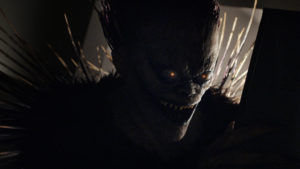 I also had a really difficult time figuring out who I should be rooting for. We get why Light has a hard time with life: his mother is killed, her killer buys himself out of a prison sentence, and he has to deal with bullies at school. So when he gets the Death Note and he’s able to turn everything around, his first act is to kill a classmate. It’s a little out there and doesn’t do much to establish himself as a “good guy.” When it comes to L, the guy who is trying to find justice and stop these murders, we never really connect with him. He is so quirky and abstract that it’s hard to find common ground, so despite his intentions, we don’t really care if he wins or not. It isn’t until he suffers a major loss do we see him exhibit any kind of emotion, and by then it’s too late into the film for the audience to really connect with the character.
I also had a really difficult time figuring out who I should be rooting for. We get why Light has a hard time with life: his mother is killed, her killer buys himself out of a prison sentence, and he has to deal with bullies at school. So when he gets the Death Note and he’s able to turn everything around, his first act is to kill a classmate. It’s a little out there and doesn’t do much to establish himself as a “good guy.” When it comes to L, the guy who is trying to find justice and stop these murders, we never really connect with him. He is so quirky and abstract that it’s hard to find common ground, so despite his intentions, we don’t really care if he wins or not. It isn’t until he suffers a major loss do we see him exhibit any kind of emotion, and by then it’s too late into the film for the audience to really connect with the character.
So who do we root for? The down-on-his-luck killer or the eccentric detective?
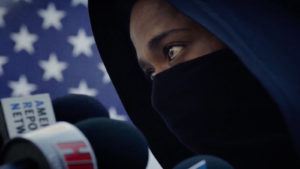 Death Note was directed by Adam Wingard, who is best known for V/H/S and for surprising everyone in 2016 with a new Blair Witch movie. I like Wingard as a director but he seemed to miss the mark with Death Note. The movie is remarkably directed and looks fantastic but really suffers from all of the logical and character inconsistencies in the script. I feel like there was definitely the possibility of a good movie, especially given the depth of the source material, but lacked the proper execution.
Death Note was directed by Adam Wingard, who is best known for V/H/S and for surprising everyone in 2016 with a new Blair Witch movie. I like Wingard as a director but he seemed to miss the mark with Death Note. The movie is remarkably directed and looks fantastic but really suffers from all of the logical and character inconsistencies in the script. I feel like there was definitely the possibility of a good movie, especially given the depth of the source material, but lacked the proper execution.
The cast did a great job with what they were given. Nat Wolff, who played Light, really felt like a lost, angry child, mad at the world for everything that happened to him. Wolff brought a lot of energy and emotion to the role and makes the character likeable despite the terrible things he does. Juxtaposed with that, Lakeith Stanfield as L made a great foil. His delivery as the stoic, brilliant detective drew that divide between the character and the audience, which made it so effective when the character hit his emotional breaking point. As a viewer, I felt his sadness and his rage, and enjoyed the way this emotion mirrored Light’s own, making them two sides of the same coin, of sorts.
 Even Margaret Qualley was fantastic as Mia. Though the character has the least depth of the cast, she’s a driving force to the story. Qualley plays the role with a certain coolness, almost emotionless. It makes the audience wonder if our opinion of the character is wrong or if she truly is a sociopath. Which is a great take considering how little backstory we get of the character.
Even Margaret Qualley was fantastic as Mia. Though the character has the least depth of the cast, she’s a driving force to the story. Qualley plays the role with a certain coolness, almost emotionless. It makes the audience wonder if our opinion of the character is wrong or if she truly is a sociopath. Which is a great take considering how little backstory we get of the character.
One of the highlights of Death Note, though, was Willem Dafoe as the voice of the demon Ryuk. Dafoe never shows up on screen but he brings life, ironically, to the death demon. His performance is reminiscent of his take on the Green Goblin in 2000’s Spider-Man, which I liked. He added a lot to a character that spends most of the movie shrouded in shadows and gives the audience something to grasp.
A Death Note film like this was a huge undertaking, considering it needed to boil down 37 episodes of the source anime into a 100 minute feature. Despite its missteps, the cast and crew did the best they could, unfortunately that didn’t make for a wholly great finished project. It’s the kind of movie to watch on a lazy weekend, or when you’re home sick hopped up on Nyquil. While it captures the dichotomy of doing bad things for good reasons, it doesn’t really explore those themes and just comes off as a superficial revenge story. Though I really did enjoy the final scene and the open-ended finale, I feel like all I really got out of this movie is the desire to watch the anime in the hopes of finding a good, complete story.
Grade: C
Well before the wide release of Spider-Man: Homecoming, early preview reviews started rolling out and proclaiming the film to be fantastic. I was a little worried that much of the hype was overblown; that the reviewers were overlooking the movie’s flaws just because they were happy to have Spider-Man as part of the Marvel Cinematic Universe. Granted, I had no reason to feel this way having not seen the movie, but that’s just the anxiety in me. After seeing Spider-Man: Homecoming, however, I realize just how silly this notion was.
For starters, Homecoming doesn’t get bogged down in an origin story. One of movie-goers’ biggest complaints is that the first film in every super hero series is an origin. Most often, it’s necessary to establish where the character comes from. Sometimes, a movie is directed well enough that the audience doesn’t realize they’re watching an origin. For Spider-Man: Homecoming, there’s a quick scene recapping Peter Parker’s (Tom Holland) experiences in Berlin prior to his debut in Captain America: Civil War and how Tony Stark (do I even need to put “Robert Downey Jr.” here?) gave him his suit but that’s it. They make references to the spider that bit him but we never see it happen. Thankfully Marvel and Sony understood that audiences know how Peter became Spider-Man.
As a character, Spider-Man has always been about dichotomy, and Homecoming recognized that. Peter Parker is the timid, nerdy, powerless kid but he’s also the strong super hero who can do amazing things. In the movie, though, we see this power divide almost everywhere. Spider-Man wants t do more and help people on a grander scale but Tony Stark limits his abilities and keeps him grounded. Adrian Toomes, the villainous Vulture played by Michael Keaton, is a hard-working, blue-collar salvage worker whose life is threatened when a powerful government organization comes in and claims authority over his jobsite. We can understand his fear and need to do whatever he has to in order to provide for his family. (This was also a nice way to tie Homecoming into the MCU and the events that transpired in Avengers.)
Spider-Man: Homecoming also places a lot of focus on Spidey’s supporting characters. Peter’s best friend, Ned (played by Jacob Batalon, who looks more like Ganke than Ned Leeds but I digress), gets almost as much screen time as Peter himself. School bully Flash Thompson (Tony Revolori) shows up often and is much more than a one-note trick than previous portrayed in the other movies. Even a character like Michelle has an abundance of screen time, but that’s to be expected when they put someone like Zendaya in that role.
All of this works to make Spider-Man: Homecoming feel like a true Spider-Man movie. Spider-Man has always been about the people around him. Seventy plus years of comics show us that Spider-Man became the hero he is because of his affection for his friends, and even his tormentors. Previous cinematic versions of Spidey never really got that ideal, or at least never expressed it as well as Homecoming did.
One of my biggest complaints about Homecoming is the way it handled Peter Parker. As the quiet, nerdy kid, Peter either gets picked on or ignored. He lives with his elderly Aunt May, who no doubt maintains her household while living on a fixed income. Peter feels that financial crisis and decides to help carry the burden. However, in Homecoming, Peter isn’t like that. Sure, he gets picked on by Flash Thompson, but overall he has a few close friendships. His peers find value in his intelligence and every time they’re disappointed by him it’s through his own actions. Even Aunt May (Marisa Tomei) is younger and prettier than her other incarnations (which the movie doesn’t hesitate to joke about), which allows her to continue to provide for herself and her teenage nephew. Peter’s life in Homecoming isn’t that bad.
Being Spider-Man, however, sure as hell seems like it. Homecoming manages to show audiences just how much it sucks to be Spider-Man. He gets yelled at by the public for making mistakes. His actions cause massive damage to the neighborhood he lives in. He puts his life on the line to take down a threat when no one else will listen to him. Why?
 Clearly because “with great power comes great responsibility.” The beauty of Spider-Man: Homecoming is that we have a Spider-Man who understands Uncle Ben’s powerful message without having to beat audiences over the head with the phrase. Not once are those words uttered, but we see how much Peter values them. This all goes back to the lack of an origin story. Spider-Man knows when it’s time to do the right thing; whether it’s from the life lesson he learned off-screen from his Uncle Ben or from being mentored by Iron Man himself is irrelevant. It’s a notion that’s inherent in this version of Spider-Man.
Clearly because “with great power comes great responsibility.” The beauty of Spider-Man: Homecoming is that we have a Spider-Man who understands Uncle Ben’s powerful message without having to beat audiences over the head with the phrase. Not once are those words uttered, but we see how much Peter values them. This all goes back to the lack of an origin story. Spider-Man knows when it’s time to do the right thing; whether it’s from the life lesson he learned off-screen from his Uncle Ben or from being mentored by Iron Man himself is irrelevant. It’s a notion that’s inherent in this version of Spider-Man.
There’s lots of things to enjoy about Spider-Man: Homecoming; all of the excellent performances of the cast, most notably by Holland and Keaton, the return of Jon Favreau as Happy Hogan in a true supporting role, and all of the small throwbacks and references the filmmakers added. Overall, what I liked about Homecoming is that this is the closest a movie version of Spider-Man has ever gotten to its comic book roots. The young Peter Parker/Spider-Man has a lot to learn, not just about being a hero but about life in general. They’re not fast forwarding through his growth but allowing audiences to experience it first-hand, which is the most exciting part of the story.
Grade: A
Each January, I make a list of the movies that I want to see that coming year. It’s usually filled with big-budget, over-blown action flicks, because that’s what I like. This year, I had to revise my list a couple of times because I overlooked a few items that should appeal to me. One of those revisions included Baby Driver. At first glance, I wasn’t too sure about the Edgar Wright penned and directed flick but I decided to give it a shot. I’m glad I did.
Ansel Elgort is Baby, the film’s protagonist. A perfectly apropos nickname given his youthful looks, but “Baby” is all audiences know the character by throughout most of the movie. Nicknames are also a recurring trend in the movie, in which a team of thieves are gathered by the mysterious Doc (Kevin Spacey) to pull off complex heists. Think the Avengers, but they steal stuff and don’t have super powers.
The plot of the movie is thin by most standards; Baby is in for “one last job” before leaving his life of crime behind him. Naturally, the plan goes off the rails and all hell breaks loose, leaving Baby to adapt if he wants to survive and live his happily ever after.
Edgar Wright is a director who manages to put his own spin on different film genres. He breathed new life into zombie movies with Shaun of the Dead and made a legitimately fun comic book flick with Scott Pilgrim vs the World. It’s easy to expect Wright to deliver a fast-paced yet super fun heist movie, which he manages to do.
Despite the weak plot, the movie is a blast, mostly because of the characters that Wright has created. We have Baby, deep and mysterious and into a wide range of music to which he has an unnatural attachment. The audience is only allowed brief glimpses into his past, but it’s enough to puzzle together why he is the way he is. We’re also given an expository explanation as to his need for music at all times, which is delivered in a delightfully clever way by Mr. Spacey himself.
Then you have Bats, played by Jamie Foxx. “Bats” is short for “Bat-Shit,” indicating how crazy the character is. We’re given nothing about Bats’s past, yet Foxx’s portrayal of the character intimates just how deep his psychoses run. Foxx is great in this role and makes it really easy for audiences to hate him.
Then there’s John Hamm’s Buddy. An enigma for most of the film, it’s hard to gauge which way Buddy goes. He’s a bank robber, sure, but he’s also the only one who’s ever shown Baby any respect. Hamm imbues Buddy with a dead-eyed stare and cool charisma that makes him look like he was ripped right out of a Tarantino film, which makes him a perfect fit for the world of Baby Driver.
With how much we give credit to Edgar Wright for his direction and the actors for their delivery, we also need to recognize the editors, Jonathan Amos and Paul Machliss. I’m sure much of the film kept with Wright’s vision, but Amos and Machliss cut it so that it gels perfectly. A lot of the fun of the movie is within the action sequences, where the gunshots and sound effects sync up with the film’s soundtrack. It’s subtle at first; you almost don’t realize it’s happening but when you do, it adds depth to the scenes.
Speaking of the music, I can’t ignore the soundtrack as it’s an important element of the film. The song selections work brilliantly with the on-screen actions. Similar to the way Guardians of the Galaxy Vol. 2 handled its own musical numbers, Baby Drivers takes innocuous song choices and pairs them with intense, frenetic action. A tire-screeching police chase set to “Bellbottoms” by The Jon Spencer Blues Explosion? It works. An explosive gun fight in a dirty warehouse with Button Down Brass’s “Tequila” as the back drop? Flawless. (The soundtrack also features Ducky from NCIS and I never thought I’d type that sentence but here I am.)
There’s more to Baby Driver than just cool characters and an OK plot; it’s a movie that delivers an experience. From the very start, and I mean at the start of the vanity logos, the film includes a low level hum, just like the one Baby hears from his tinnitus. It accompanies almost all of the moments that aren’t occupied by music or explosions and is persistent throughout, making the audience feel just like Baby does. Sometimes it’s noticeable, sometimes it isn’t. Either way, we get a better idea of how Baby hears his world.
Baby Driver isn’t perfect, though. Baby’s world is turned around when he meets a pretty, perky waitress named Debora (Lily James). Debora’s goal is to cut and run out of town, a goal that Baby doesn’t realize he has until he meets her. James is lovely in the role but her part just runs flat. We get some back story into her character but it’s nothing of any significance. She has a whirlwind romance with Baby but she doesn’t actually change him in any way. We’ve already seen that he has a conscience despite what he does for a living; all Debora does is make him want to run away from the life he built in Atlanta.
It’s a weird dynamic, in a way, considering the relationship Wright shows us between Baby and his foster father, Joe (CJ Jones). Joe is deaf and uses a wheelchair, casting Baby in the caregiver role. Their relationship is so natural and authentic that I would find Joe a more believable reason for Baby to escape the world that he’s entrenched in. I guess you just can’t beat a pretty girl when it comes to movie tropes.
Leaving aside the stale plotline and few shallow characters, Baby Driver is a remarkable film. It’s a fun, upbeat romp in a summer overloaded with drab, ennui-filled popcorn flicks.
Grade: A-
When Iron Man debuted in theaters in 2008, audiences had no idea that it would completely change the landscape of film-making forever. It marked the birth of the Marvel Cinematic Universe. The MCU became a collection of movies featuring different characters all tied together as a way to multiply audience interest and profits for otherwise uninteresting movies. While Marvel pioneered the scheme, other studios quickly jumped on board, notably Marvel’s main competitor, DC Comics. Universal Pictures recently decided to dust off their “Monsters” properties and build their own Cinematic Universe. The Mummy marks the first film in what they’ve christened “Dark Universe.” But the question remains; is The Mummy worthwhile?
From the very start, Universal wanted to make sure audiences were aware that The Mummy is part of a larger framework. With press releases and announcements of Johnny Depp playing the Invisible Man, this felt unnecessary. The studio has even inserted a logo variation that morphs the famous “Universal Pictures” vanity logo into the words “Dark Universe,” almost like a new entity that produced the movie. It’s an odd addition, one done out of hubris more than anything else, and it’s completely ridiculous. It would be as if Iron Man began with a logo touting it as “A Marvel Cinematic Film.”
The film itself opens in an equally bizarre way: on the burial of a Templar Knight in twelfth century England. It then quickly transitions to modern-day London before flashing back to Egypt and summarizing the history of Ahmanet and her quest for power, all told through a narration by Russell Crowe’s character. Why any of this was necessary I can’t say. The only thing I can think of is that the film’s writers, of which there are six, had no faith that audiences would have been able to understand the hook without having it spelled out. That theory also explains the immense amount of verbal exposition we get along the way. For a film that’s as steeped in lore as The Mummy, I would expect an excess of expository dialogue, but Universal really took advantage of my expectations.
Most of the film gets bogged down from how hard it is to like Tom Cruise’s character. Nick…Something Or Other is an Army Sergeant/thief who has his sights set on “liberating” whatever valuables he happens to find in modern-day Iraq. He makes no excuses for his deception and his main motivation throughout the film is saving himself. There’s a slight glimmer of goodness in his character, which is dashed as quickly as it appears by way of a sad attempt at levity. I doubt the writers even realized that their throw-away joke negated any positive quality in the character, because if they did, they should have worked harder to make him more likeable.
The dislike of Cruise’s character is compounded by how terribly the writers treat his female counterpart. Nick takes advantage of archeologist Jenny Halsey (Annabelle Wallis) by lying to her, sleeping with her, and stealing her map to the location of what he believe is “treasure,” but not once does he show remorse for his actions. However, when he later discovers her secret that she’s been working with a covert team of “archeologists,” she’s made to feel terrible for her actions and apologizes profusely. Even watching this through the eyes of a dude, I could see the incongruity plain as day.
As expected, the movie makes a number of humorous attempts through its big, loud action sequence but most of them are so trite and obvious that they fall flat. Not to mention that some of the biggest jokes happen at the most inopportune moment, which made it uncomfortable to even enjoy them.
The humor was another pratfall the movie continued to make. Many of the jokes happen with unfortunate timing, such as when danger was at its highest. This created a strange juxtaposition that felt awkward. Am I supposed to laugh as Tom Cruise is about to get a dagger plunged into his heart? According to the writers, yes, I am.
I can’t say that the film is entirely bad, though. It does a few things right, most notably the casting of Sofia Boutella as the titular Mummy. Boutella has an amazing onscreen presence. The way she plays Ahmanet is threatening, unrelenting, and imposing, but she also manages to ply sympathy when needed. The only downside is how much her talent is wasted on a one-note villain. Granted, Ahmanet has more depth than both Cruise’s and Wallis’s characters, but her antagonism just comes off as boring. She’s the ultimate unstoppable evil that can be easily stopped by a MacGuffin.
Then you have Russell Crowe, whose appearance in this film is solely to expand the Dark Universe. Crowe plays Dr. Henry Jekyll. Yep, that Dr. Jekyll. He was a joy to watch as he seemed to be the only person in the ensemble who bothered getting into character. While I did like the way the film introduced the Jekyll/Hyde connection, I feel like they overdid it. In a case like this, as most of Marvel’s films have shown, a little goes a long way. Universal, on the other hand, didn’t seem to trust their audience would get the allusion and needed to center an entire action scene on just how badass Mr. Hyde could be. While it was a fun scene, it slowed down the pacing of the film and took some of the spotlight away from the Mummy, who should have always been the focus of the film.
For a movie that’s meant to kickstart a cinematic universe full of classic monsters, The Mummy lacks any sort of horror or thrills. It’s overflowing with cheap jump scares and cringe inducing creepiness (like Cruise being covered in rats), and those grow old fast. It also lacks the charm that 1999’s The Mummy starring Brendan Fraser had. At this point, it must be asked: what is this Mummy flick supposed to bring to the table, besides over-the-top action pieces?
Would I say The Mummy was a good movie? Nope. I will say that as the tent pole of the “Dark Universe,” it was fun, and at the very least, it opened the doors for films featuring a more diverse cast of classic monsters. After years of countless Dracula, Frankenstein and Werewolf movies, we finally have the chance to gets movies centered on the Hunchback of Notre Dame, Dr. Jekyll and Mr. Hyde, and the Invisible Man. In the hands of the right writer and director, these movies have the opportunity to be mind-blowing. While The Mummy is mediocre at best, it deserves some credit.
Grade: C






